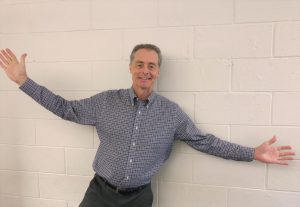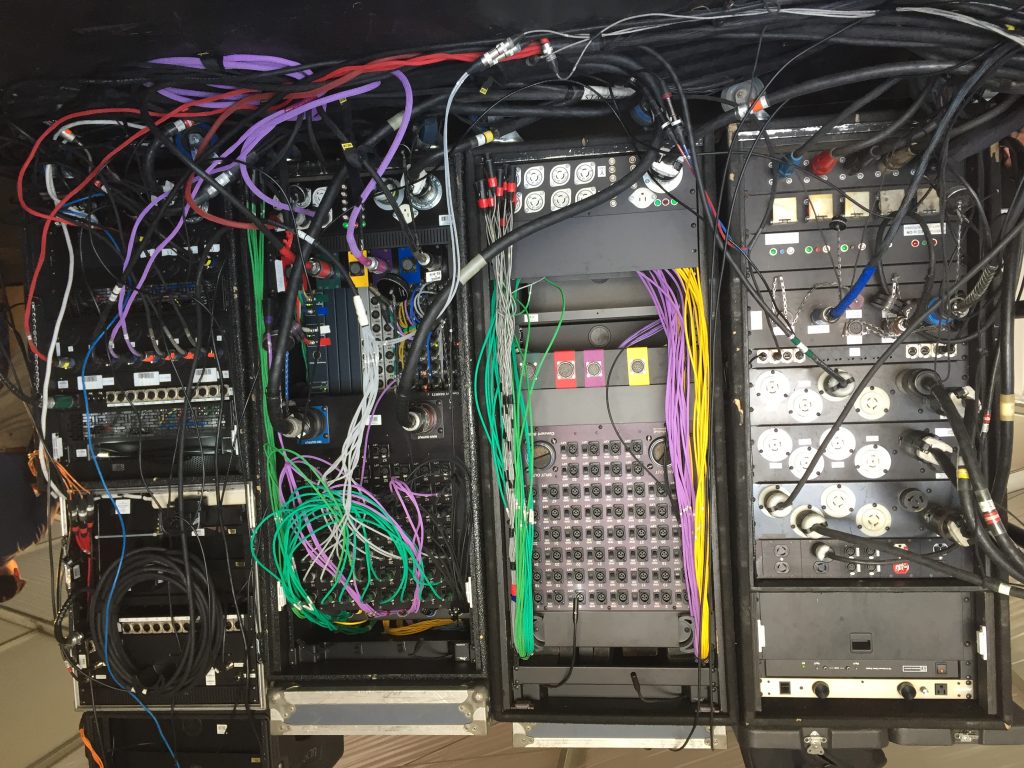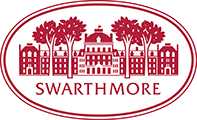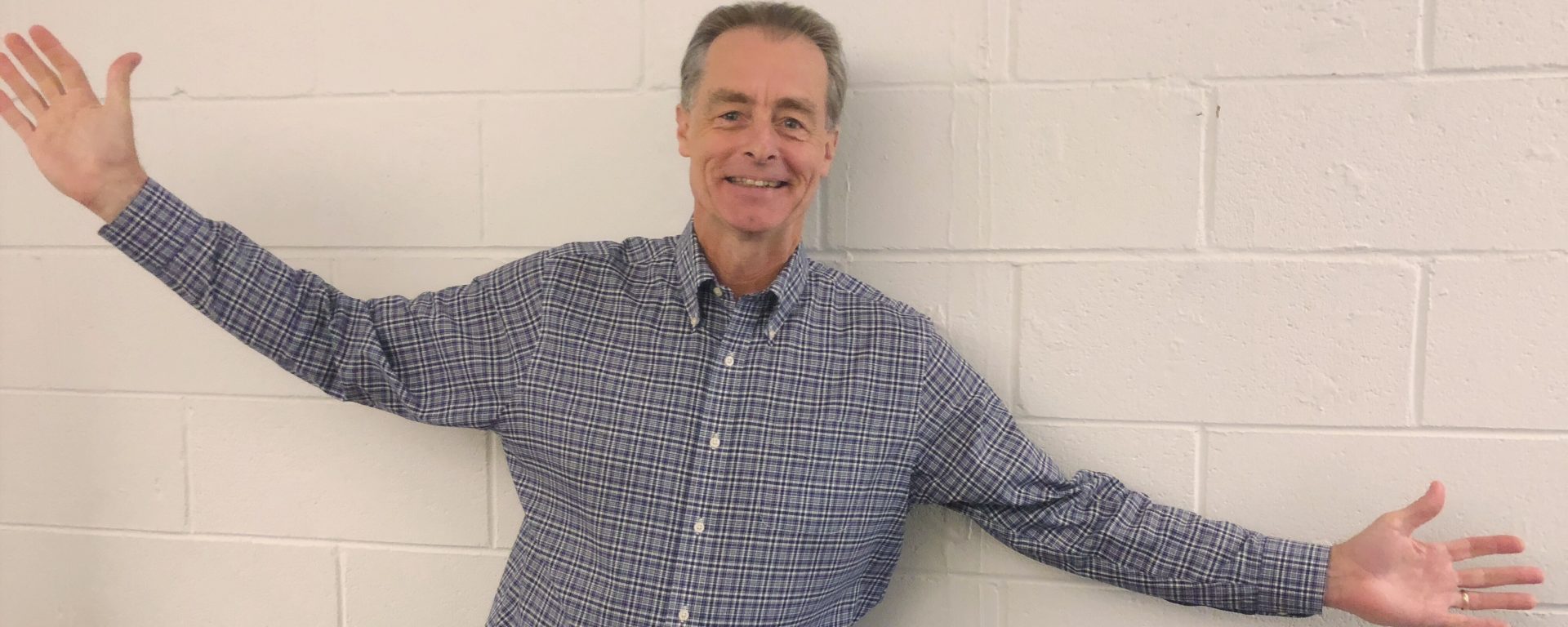
The “Who Is That?” series gives you insight into who we are here in the ITS department with a series of traditional and non-traditional interview questions.
Wrapping up: From our last post with Mark CJ Davis, Jr., Manager of Desktop Systems, he lied to us about being a professional dancer.
Today, we meet and learn about Joel Cooper (JC).
Interviewer (I): What year did you start working at Swarthmore?
JC: 2013. Early February.
I: What are the biggest changes you’ve seen since you started working in higher education technology?
JC: Everything has changed, and the changes are coming with increasing frequency!
I started my career in higher education IT at UT-Austin in 1985 as what we now call an academic technologist. My desktop device was a VT52 computer terminal, and two weeks after I started my job I was given a brand new 128K Macintosh. There was no computer network of any kind, just terminal connections to mainframe computers. I started learning about the technology tools at my fingertips and other resources near at hand. UT-Austin was connected to the ARPANET (the predecessor of the Internet) and BITNET (an IBM mainframe equivalent of the Internet, now extinct). The doors were all wide open for me to learn…
Through my career I’ve witnessed the explosion of microcomputers/desktop computers, the development and deployment of university data networks, the growth of the Internet, the invention and explosion of the World Wide Web, and so many other innovations in academic technology and administrative information systems.
I: There were a lot of acronyms in those Wikipedia articles.
I: Are there any standout moments where you could point to a particular device or service really changing the game?
JC: I remember clearly when iPods showed up and the campus went silent (no more 300 watt-per-channel stereos in residence halls blasting music out the windows). And lately the move of so many information systems we depend on (think G Suite for Education) to the cloud, and now the Internet of Things (examples here on campus include our Internet of Doors/door access system and Cunningham Parking Lot which is on the network). Oh, and I forgot to mention smartphones!
OK, this is making me feel old….
I: Let’s change things up, then. Your title is Chief Information Technology Officer, but have you ever had to describe your job in haiku (5 syllables, 7 syllables, 5 syllables)?
JC: No.
I: Would you, please?
JC: Okay, here are three:
Leader of the band
Fostering innovation
With awesome people
Reliable tech
Fair winds moving us forward
I help steer the boat
One song many parts
ITS the orchestra
I hold the baton
I: The Writing Center
Do they know of your prowess?
Poet at the helm!
I: Also, in your last haiku, we wanted to make sure that people read ITS as I-T-S so the syllables work out correctly. Otherwise, it’s “its,” which causes us to come up two syllables short on the haiku. You also just forced me to explain the difference between ITS, it’s, and its. So that’s something.
JC: *flips table*
I: Ahem, sorry about that.
I: Is there a particular piece of technology or service you’re excited for the campus to know about?
JC: Great question! A new piece of technology ITS began installing widely last summer in classrooms and conference rooms is the Mersive Solstice. It enables just about any device to connect to the Solstice and data projector or flat screen TV connected to it and allows you to share your screen. No more cables, all you need is a web browser to connect. Students can easily share their screens in classes, faculty can show slides from an iPad or smartphone. I think it’s a transformative technology that’s just starting to catch on and I’m excited to see what will happen at Swarthmore when it really takes off.
I: Is there a particular piece of technology you are excited about outside of work?
JC: I always like to check out the “back of the house” at concerts and festivals. Sound mixing boards, lighting control systems, stage sound, house sound. Lots of equipment, power and sound cabling, electronics — major cool factor for me. I am also fortunate enough to have spent time in several recording studios — always a blast. Here’s a picture:

I: Please write two truths and one lie in any order below. We’ll reveal your lie on the next blog post.
JC:
- I’m an ice fisherman
- I’m a runner
- I’m the only one in my family that doesn’t rock climb
I: I’ve heard that ITS is a very musical department and you’re one of the musicians. Mind sharing a bit more about any projects you are or have been a part of?
JC: I’m primarily a bass player but I also play a bit of guitar, harmonica, and tin whistle, and do backing vocals. I’ve played in a lot of bands (no jazz, no country, no punk, pretty much everything else) and have written a couple songs. The longest lived band is still going strong: Kennedy’s Kitchen, an Irish band based in South Bend, IN (I am a founding member). I still show up every now and then and sit in at a gig.
I: What are your feelings on the Oxford Comma/serial comma?
JC: I’m a consistent, unswerving, and enthusiastic user.
I: HAHAHAHAHAHAHAHA
I: What is something you wish folks on campus knew about your job or about the ITS Department?
JC: I’m greatly blessed to be a part of ITS — a group of really smart, dedicated people who like each other, get along, and strive to do great work in support the College’s mission.
I: What is a question you wished you’d been asked in this interview? Please answer it!
JC: Q: What’s one life goal you haven’t yet accomplished?
A: I’d like to go on tour with a band. Nothing crazy, just like doing the festival circuit for a summer…

